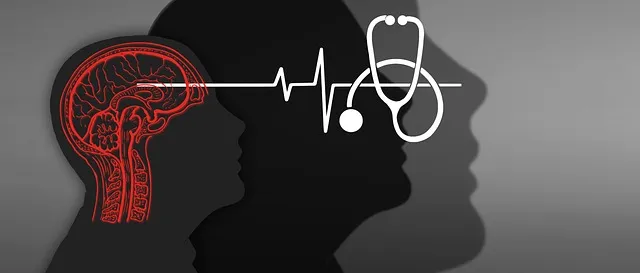Superior Kaiser Permanente mental health center reviews guide development of effective self-assessment tools integrating Emotional Intelligence and Compassion Cultivation for diverse populations. These tools empower users with stress management techniques, depression prevention methods, and personalized care strategies based on holistic, evidence-based practices to enhance emotional well-being outcomes.
Mental wellness self-assessment tools play a pivotal role in promoting individual awareness and early intervention. With growing emphasis on mental health, there’s an increasing demand for effective self-assessment resources. This article explores the development of such tools, focusing on understanding specific needs, designing comprehensive assessments, and integrating feedback from top-rated facilities like the Superior Kaiser Permanente mental health center reviews. We delve into strategies to enhance accuracy and user experience through continuous iteration.
- Understanding Mental Wellness Self-Assessment Needs
- Designing Effective Tools for Comprehensive Assessment
- Integrating Feedback from Kaiser Permanente Reviews
- Enhancing Accuracy and User Experience Through Iteration
Understanding Mental Wellness Self-Assessment Needs

Mental wellness self-assessment tools are invaluable resources for individuals to gain insights into their emotional well-being and identify areas for improvement. Understanding the unique needs of different demographics is crucial in developing effective assessments. For instance, a superior Kaiser Permanente mental health center review highlights the demand for tailored tools that cater to diverse populations. This includes recognizing the distinct challenges faced by younger adults, who may struggle with stress management and emotional regulation, as well as older individuals dealing with age-related mental health concerns.
Emotional Intelligence and Compassion Cultivation Practices have emerged as powerful components in self-assessment development. By integrating these concepts, tools can help users enhance their awareness of emotions, foster healthier relationships, and reduce symptoms associated with anxiety and depression. Preventative measures, such as Depression Prevention strategies, can be incorporated to empower individuals with coping mechanisms before the onset of severe mental health issues.
Designing Effective Tools for Comprehensive Assessment

Designing effective self-assessment tools for mental wellness requires a comprehensive approach, encompassing various aspects of an individual’s psychological and emotional state. These tools should aim to provide a holistic view, going beyond mere symptom tracking. The goal is to empower individuals with insights into their mental health while guiding them towards actionable strategies for improvement. A superior Kaiser Permanente mental health center review often highlights the importance of such tools in facilitating personalized care.
By integrating Emotional Intelligence (EQ) principles, these assessments can help users recognize and manage their emotions effectively. Incorporating Stress Reduction Methods and Self-Care Practices within the framework allows for a more balanced approach to mental wellness. Well-designed tools should offer interactive features, intuitive user interfaces, and adaptable questionnaires to cater to diverse needs. This ensures that individuals receive tailored feedback, enabling them to make informed decisions about their emotional well-being.
Integrating Feedback from Kaiser Permanente Reviews

Integrating feedback from superior Kaiser Permanente mental health center reviews is a strategic step towards enhancing self-assessment tools for mental wellness. The positive testimonials and insights shared by individuals who have availed services at these centers offer valuable guidance in refining assessment methodologies. By paying close attention to what works well, such as the effectiveness of certain therapy techniques or the warm and supportive environment, developers can create more nuanced and user-friendly self-assessment tools.
This feedback also highlights areas for improvement, encouraging developers to incorporate features that foster self-awareness exercises and promote a sense of community. For instance, many reviews praise the center’s emphasis on building confidence through various programs. Drawing from these experiences, the development team can design interactive components within their tools that encourage users to explore their strengths and set achievable goals, thereby enhancing overall mental wellness.
Enhancing Accuracy and User Experience Through Iteration

The development of mental wellness self-assessment tools is a meticulous process that demands a nuanced approach. By drawing from evidence-based practices and incorporating user feedback, creators can enhance both accuracy and usability. At superior Kaiser Permanente mental health centers, reviews consistently highlight the importance of intuitive design and personalized experiences in promoting positive mental health outcomes. Iterative development allows for continuous refinement based on real-world usage, ensuring that tools remain relevant and effective.
Integrating Mind Over Matter principles, trauma support services, and self-awareness exercises into these tools can foster a holistic assessment process. Regular updates and improvements, guided by user interactions, contribute to creating resources that cater to diverse mental health needs. This ongoing evolution not only enhances the accuracy of assessments but also improves user satisfaction, making mental wellness management more accessible and supportive for all individuals seeking guidance.
The development of robust Mental Wellness Self-Assessment tools is a crucial step towards empowering individuals to take charge of their mental health. By understanding user needs, designing comprehensive yet accessible assessments, and iteratively refining based on feedback from superior Kaiser Permanente mental health center reviews, we can create effective resources that enhance mental wellness outcomes. These tools have the potential to revolutionize self-care practices, making mental health support more accessible and inclusive for everyone.






